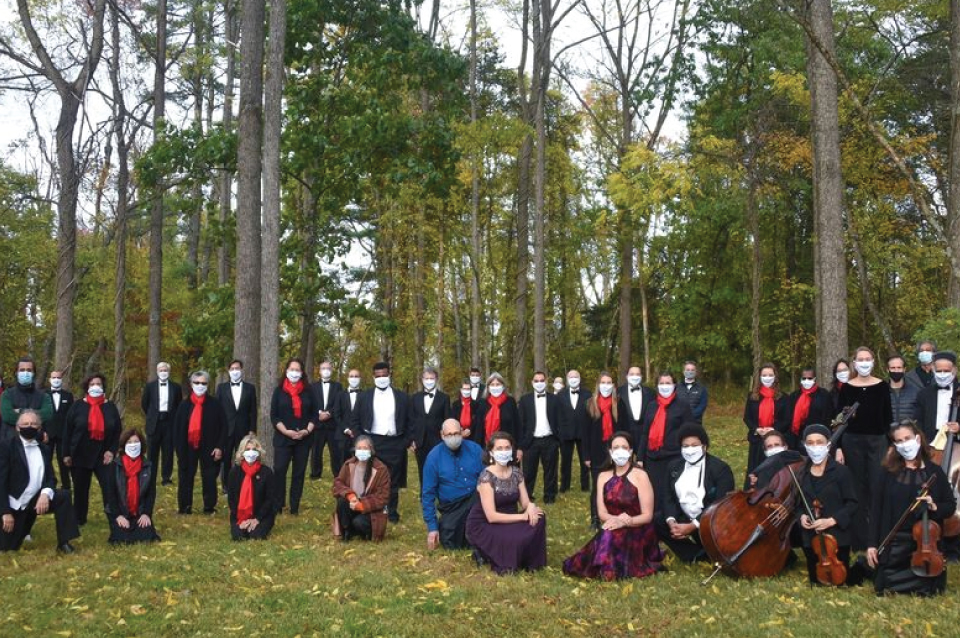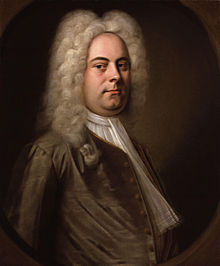
Handel’s glorious oratorio, Messiah, with the New York Oratorio Society under the baton of Kent Tritle will not be performed as usual this year at Carnegie Hall, yet they have recorded a fifty-minute streaming version from Stone Ridge, N.Y., which you can hear in your home. For free! The technology for this recording in its virtual sound is outstanding!
Overhearing rehearsal from the street in the Dublin Spring of 1742 Johnathan Swift was not impressed and complained of the “scringing and screaming,” yet the April 13th performance was a tremendous success. All profits went to charities: a hospital prisoner relief, and an infirmary.
While the populace was not impressed by Messiah in its first London performance on March 23, 1743, King George II was more than impressed. During the “Hallelujah Chorus” the king was so moved he stood up. Subsequent performances have repeated this tradition. From experience, I can attest that something marvelously strange occurs in the brain at this point in the oratorio: transcendent exultation unlike any other enthusiasm from any oratorio or opera. And this virtual version arrives as near as possible in this YouTube recording.
After the initial failure of the oratorio, Handel in 1749 donated a new organ to the Foundling Hospital in London. He dedicated the organ on May 1, 1750, with a performance of Messiah; he gave the orphanage exclusive rights to its performance. For the next nine years at the orphanage Handel conducted annual performances around Easter. His generosity not only saved the orphanage, but it established Messiah as a monumental masterpiece.

During the April 6, 1759 performance Handel, now blind, became faint as he directed “The Trumpet Shall Sound” movement. He appeared to recover by the final Amen, yet he went home to bed and never recovered, dying on Good Saturday. Despite the oratorio’s subsequent association with Christmas, due to its overwhelming popularity, this calendrical point remains the proper moment for a performance of Messiah.
Part of the appeal of Handel’s Messiah resides in its non-liturgical conception. The pathos of the work remains rooted in ethical humanism rather liturgical dignity. The work reflects the ethical ideals of The Enlightenment, yet it is also true that its popularity is due to its universal religious appeal. Solo ensembles sometimes over-go the demands of operatic convention.
The work itself, despite its prose libretto, propels taut, dramatic tension. Yet it is the chorale numbers that create a new aesthetic synthesis by incorporating the finest conceptions and techniques from German cantata, Italian opera and choral tradition, and English anthem choral singing.
The origin of the Messiah as a concept arrived in Judaism and Christianity from Zoroastrianism. Zarathustra (who invented the Holy Spirit, the Devil, Day of Judgement, Baptism, Forgiveness of sins ritual, plus the Sunday tent-feast-ritual meal of bread, wine, and cheese) claimed that a Messiah would appear just before the end of human Time.
This Oratorio Society of New York production occurs partly in a barn with love choral singers wearing masks in the woods, which clothes the choir in the ambiance of wood nymphs. Susanna Phillips as soprano is amazing while baritone Sidney Outlaw is outstanding. With a smaller than usual orchestra, the sound and unity is superlative. Nice to hear the cello of Arthur Fiacco and the live ethereal voice of Sharon Webb. The virtual choir appears with exciting multi-graphic boxes.
The famous finale is worth back-scrolling for relistening. (I did that thrice.)
Here is the free link: